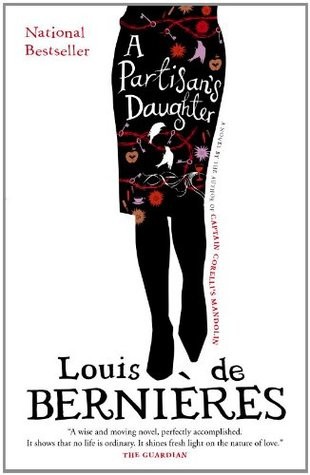
A Partisan's Daughter
کتاب های مرتبط
- اطلاعات
- نقد و بررسی
- دیدگاه کاربران
نقد و بررسی

August 4, 2008
De Bernières (Corelli’s Mandolin
) delivers an oddball love story of two spiritually displaced would-be lovers. During a dreary late 1970s London winter, stolid and discontented Chris is drawn to seedy and mysterious Roza, a Yugoslav émigrée he initially believes is a prostitute. She isn’t (though she claims to have been), and soon the two embark on an awkward friendship (Chris would like to imagine it as a romance) in which Roza spins her life’s stories for her nondescript, erstwhile suitor. Roza, whose father supported Tito, moved to London for opportunity but instead found a school of hard knocks, and she’s all too happy to dole out the lessons she learned to the slavering Chris. The questions of whether Roza will fall for Chris and whether Chris will leave his wife (he calls her “the Great White Loaf”) carry the reader along, as the reliability of Chris and Roza, who trade off narration duties, is called into question—sometimes to less than ideal effect. The conclusion is crushing, and Chris’s scorching regret burns brightly to the last line.

September 1, 2008
De Bernières, whose sweeping epics took us to Turkey in "Birds Without Wings" and to Greece in "Corelli's Mandolin", turns closer to home with a melancholy tale of midlife crisis set in 1970s London with occasional glimpses of Yugoslavia. Chris is a 40-year-old unhappily married salesman who mistakes Roza for a streetwalker and in his loneliness makes a fumbling attempt to hire her. Instead, he gives her a lift home, and she invites him to return to her ramshackle flat for coffee. He does repeatedly as Roza slowly relates her intricate and allegedly sordid life story as the daughter of a fervent Tito loyalist. A complex and codependent relationship develops as Chris is alternately appalled and thrilled by Roza's blunt, manipulative storytelling and Roza imagines a future as Chris's lover. Overall, this is a sad, quiet novel about missed opportunities owing to lack of honest communication. Although more introspective than de Bernières's other works, this latest novel is no less skillful. For all literary fiction collections. [See Prepub Alert, "LJ" 4/1/08; reading group guide available on www.aaknpf.com at time of publication.Ed.]Christine Perkins, Bellingham P.L., WA
Copyright 2008 Library Journal, LLC Used with permission.

Starred review from September 15, 2008
Although Scheherazade may be the most famous damsel ever todelay her fate by spinning out nightly yarns of fantasy and intrigue, Roza, de Berni'res captivating temptress, is equally gifted in the art of storytelling as she enchants Chris with tales of lust, love, and loss. Unhappily married (he calls his wife the Great White Loaf) and disarmingly naive, Chris mistakes Roza for a prostitute, and she is just delighted enough with the misconception, in a quirky sort of way, to encourage the charade. Instead of sex, however, Roza and Chris meet regularly just to talk. A Yugoslavian emigrant, Roza regales Chris with episodes from her past that are both preposterous and poignant, the truth seductively masked by her alluring combination of frailty and bravado. And like a soap-opera junkie living vicariously through characters in an alternate universe, Chris depends upon Rozas bizarre history to allow him to temporarily escape his own tedious and tiresome existence. A provocative and artful analyst of the human psyche, de Berni'res vividly celebrates the tantalizing strength of stories to transform individual lives through their eternal and universal appeal.(Reprinted with permission of Booklist, copyright 2008, American Library Association.)

























دیدگاه کاربران